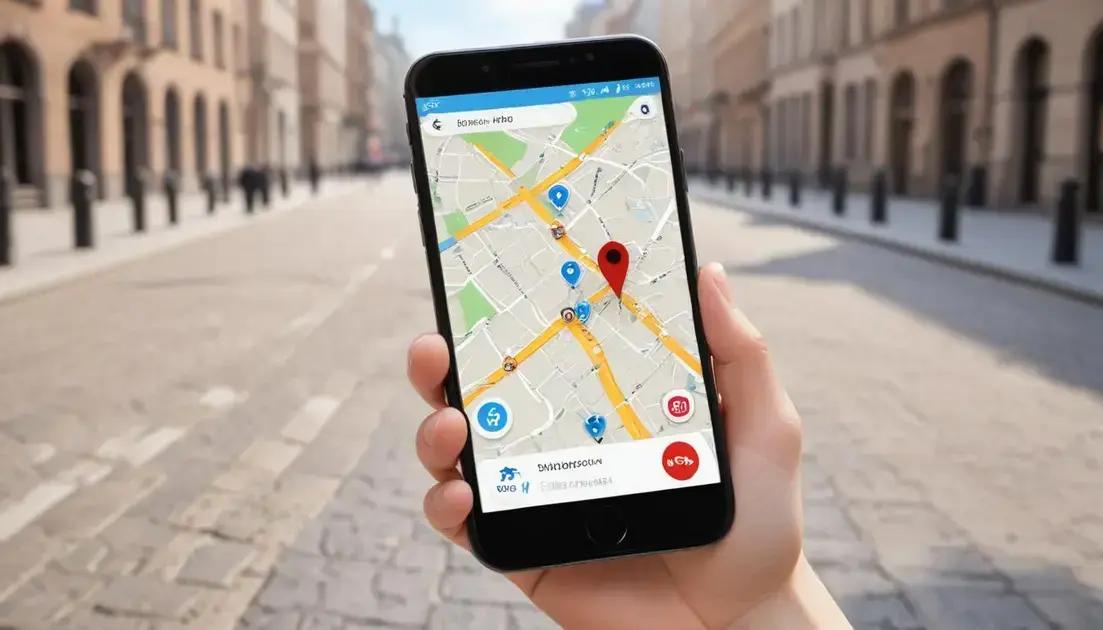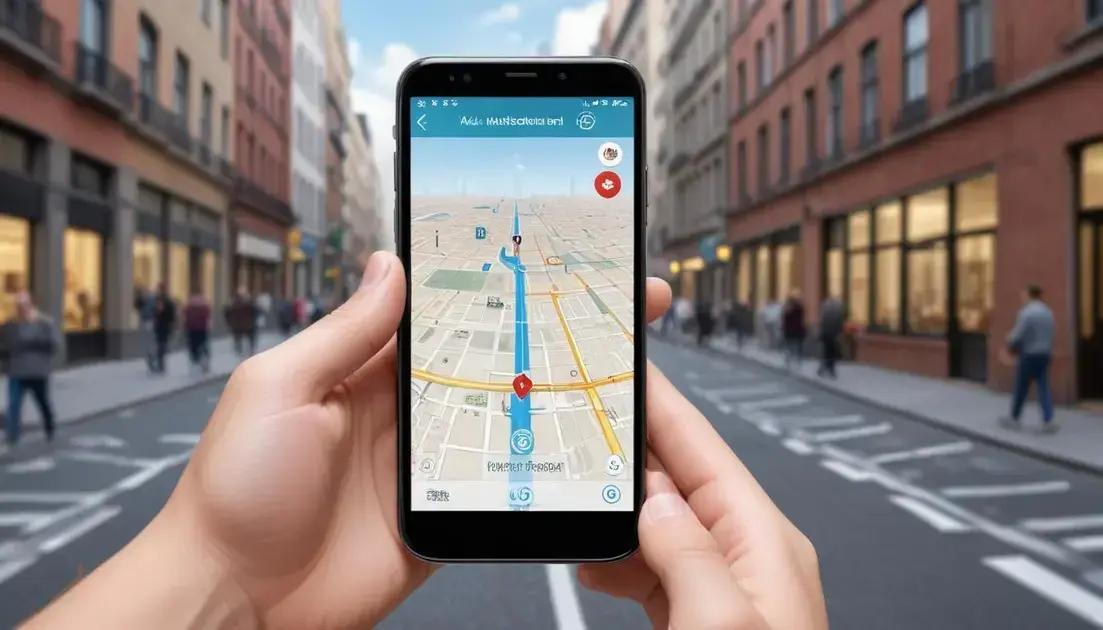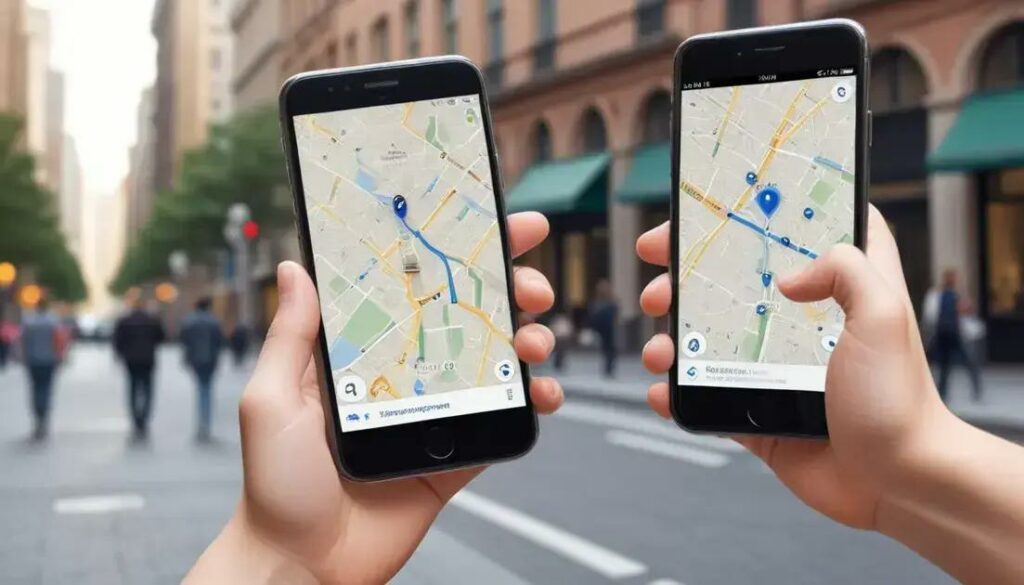Address Lookup is an essential function for location-based apps, connecting GPS coordinates to real-world addresses. Curious about its impact? Let’s delve in!
The Role of Address Lookup in Geolocation Applications
Address Lookup plays a vital role in geolocation applications. It helps convert GPS coordinates into readable addresses. When you use a map app, Address Lookup is busy working behind the scenes.
Imagine you are driving in a new city. You want to find a restaurant nearby. You type in the restaurant’s name. The app uses Address Lookup to find the exact location, showing you how to get there.
Why is Address Lookup Important?
Having accurate addresses is crucial for many reasons. First, it ensures users get the right directions. Wrong addresses can lead to frustration and wasted time. Second, Address Lookup improves overall user experience. Apps that provide smart and precise results tend to keep users happy.
How Does Address Lookup Work?
The process is straightforward. When GPS data is received, the application sends it to the Address Lookup service. This service then translates the coordinates into an address. Some apps even show additional details, like nearby landmarks or businesses.
Most modern apps use APIs for Address Lookup. APIs help connect your app with larger databases that store addresses and geographical data. This connection is fast and reliable.
Real-World Applications of Address Lookup
Many industries benefit from Address Lookup. Delivery services rely on it to reach customers accurately. Real estate apps also use it to show properties on a map. This helps buyers visualize locations quickly.
Travel apps often use Address Lookup to guide users with local recommendations. Whether they want to find restaurants or attractions, accurate addresses are key. That’s why this technology is essential.
Core Functions of Geolocation Apps

Geolocation apps offer many core functions that make our lives easier. These applications use GPS technology to find our exact location and help us navigate.
One main function is real-time tracking. This feature lets users see their movements on a map. Whether you’re walking, driving, or biking, it keeps you on track. The app updates your location as you move.
Directions and Navigation
Another crucial function is providing directions. When you enter a destination, the app calculates the best route. It considers traffic, road closures, and other factors to give you accurate routes.
In addition to directions, geolocation apps often include estimated arrival times. This helps users plan their trips better. Knowing how long it will take to reach a place can save time and reduce stress.
Nearby Places
Geolocation apps also help find nearby places. Users can search for restaurants, gas stations, and more. The app shows options based on your location. This makes exploring new areas easy and fun.
Many apps offer user reviews and ratings. This information helps users choose the best places to visit. It provides social proof, which is helpful for making decisions.
Location Sharing
Another interesting function is location sharing. Users can share their real-time location with friends and family. This feature is useful for coordinating meetups or staying safe.
Some apps even have special safety functions. For example, users can share their location with trusted contacts while traveling. This adds an extra layer of security.
Importance of Accuracy in Geolocation Applications
Accuracy is crucial in geolocation applications. When users rely on these apps, they expect precise information. If the data is incorrect, it can lead to confusion and frustration.
For example, think about using a maps app. If the app shows the wrong location, you might end up lost. This kind of mistake can waste time and create stress. That’s why accuracy in geolocation is so important.
How Accuracy Affects User Experience
When an app provides accurate data, users feel more confident. They trust the app to guide them correctly. This trust leads to a better overall experience.
Accurate location information helps users find what they need quickly. Whether it’s a restaurant or a store, being directed to the right place makes the app more valuable.
The Risks of Inaccurate Data
Inaccurate data poses serious risks. Wrong information can affect businesses too. For example, if a delivery service uses incorrect coordinates, packages might be sent to the wrong address.
This mistake can upset customers and harm a company’s reputation. That’s why geolocation apps must ensure high levels of accuracy in their data.
Methods to Improve Accuracy
Many geolocation apps use different technologies to boost accuracy. One common method is utilizing GPS satellites. These satellites help pinpoint exact locations.
Another method is using maps that are constantly updated. This keeps the app’s information fresh and correct, which is essential for reliable navigation.
Finally, user feedback can also help improve accuracy. When users report issues, developers can make necessary fixes. This creates a better app for everyone.
Approaches to Building Geolocation Applications

Building geolocation applications requires careful planning and design. There are various approaches that developers can take to create effective apps.
One popular method is using existing Location APIs. These APIs provide powerful tools and data for developers. They save time and resources by handling complex functions.
Choosing the Right Platform
Deciding on the right platform is crucial. Developers can choose between mobile and web applications. Mobile apps are great for on-the-go use, while web apps are accessible from any device.
Each platform has its benefits. Mobile apps can use device features, like GPS and cameras. Web apps can reach a wider audience with easy access.
Data Management
Effective data management is also key. Geolocation apps need to handle a lot of information. This includes user locations and map data. It’s important to keep this data organized and secure.
Some developers use cloud services for data storage. Cloud solutions can scale easily and help manage large amounts of data without hardware costs.
User Experience Design
Another important aspect is user experience (UX) design. A simple, intuitive interface is essential. Users should be able to navigate the app easily and find information quickly.
Using clear icons and familiar layouts can help. Good UX design keeps users engaged and encourages them to use the app more.
Testing and Feedback
Finally, testing the app is essential. Developers should conduct usability testing before launching. This helps identify any issues and ensures smooth operation.
User feedback is invaluable. Listening to users can guide improvements and updates. Building geolocation applications is an ongoing process, and adapting to user needs is key.
Best Practices for Security and Privacy in Geolocation Apps
When developing geolocation apps, security and privacy are top concerns. Users trust these apps with their location data, so protecting that information is crucial.
One important practice is to use encryption. This process scrambles data to keep it safe from unwanted access. By encrypting location data, developers reduce the risk of leaks.
Minimal Data Collection
Geolocation apps should collect the least amount of data needed. This means only asking for location when necessary. If the app can function without constant tracking, that’s better for user privacy.
Users appreciate when apps aren’t always watching them. This builds trust and encourages users to keep using the app.
User Consent
Another best practice is obtaining user consent. Users should know exactly what data the app collects. It’s important to explain how their data will be used.
Apps should provide options to opt-in or out for tracking features. When users feel in control of their information, they’re more likely to feel secure.
Regular Updates and Security Checks
Keeping the app updated is essential. Regular updates fix security flaws that may arise over time. Developers should schedule updates often to keep the app safe.
Security checks can also help identify any potential weak spots. Performing routine audits ensures that the app meets security standards.
Transparency with Users
Lastly, developers should be transparent with users. Clear communication about how their data is used fosters trust. Providing a privacy policy is a good start.
Users want to know their information is safe. When apps are open about data handling, users feel more comfortable using them.
Conclusion: The Future of Address Lookup in App Development

The future of Address Lookup in app development looks bright. As more people rely on mobile apps, the demand for accurate address recognition will grow. This feature helps users connect with their locations easily.
New technologies will make Address Lookup even better. For example, integrating machine learning can enhance the accuracy of converting addresses. This means fewer errors in apps that depend on location data.
Enhancing User Experience
Improving Address Lookup will also boost the user experience. When users receive correct information quickly, they’ll be happier with the app. This can lead to more downloads and stronger user retention.
Additionally, features like voice recognition for address input can simplify the process. Users can just say where they want to go, and the app handles the rest.
Security and Privacy Considerations
As Address Lookup grows, so does the need for security. Users are concerned about their data privacy. So, developers will need to ensure that location data is protected.
Transparent practices regarding data handling will be crucial. Keeping users informed about how their information is used can build trust and encourage app use.
Collaboration with Other Technologies
Address Lookup will likely work closely with other technologies. For example, pairing it with augmented reality (AR) will create engaging experiences. Imagine navigating through streets with AR while having accurate address information right in front of you.
This integration can be particularly useful for retail apps, helping users find stores quickly and efficiently. The potential for innovation in this area is vast.




